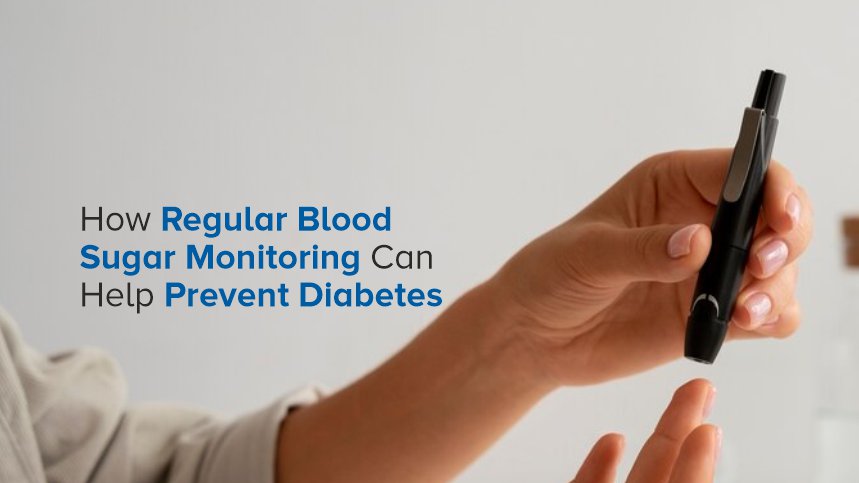


Condition
- Preventive Health Checkup
- Top tests
- Diabetes
- Top tests
- Preventive Health Checkup
- Preventive Health Checkup
- Preventive Health Checkup
- Diabetes
- Lifestyle Packages
- Lifestyle Packages
- Heart Disease & Hypertension
- Lifestyle Packages
- Heart Disease & Hypertension
- Lifestyle Packages
- Preventive Health Checkup
- Preventive Health Checkup
- Preventive Health Checkup
- Lifestyle Packages
- Top tests
- Lifestyle Packages
- Top tests
- Lifestyle Packages
- Top tests
- Diabetes
- Diabetes
- Others
- Blood Disorders
- Top tests
- Others
- Others
- Others
- Fever
- Fever
- Blood Disorders
- Blood Disorders
- Preventive Health Checkup
- Preventive Health Checkup
- Profile
- Kidney Disease
- Kidney Disease
- Diabetes
- Diabetes
- Heart Disease & Hypertension
- Preventive Health Checkup
- Lifestyle Packages
- Thyroid Disorder
- Diabetes
- Diabetes
- Diabetes
- Diabetes
- Diabetes
- Diabetes
- Diabetes
- Top tests
- Allergy
- Top tests
- Top tests
- Top tests
- Top tests
- Diabetes
- Top tests
- Diabetes
- Top tests
- Top tests
- Top tests
- Liver Disease
- Diabetes
- Top tests
- Vitamin Deficiency
- Top tests
- Top tests
- Liver Disease
- Top tests
- Top tests
- Top tests
- Anemia
- Anemia
- Anemia
- Diabetes
- Diabetes
- Anemia
- Top tests
- Top tests
- Top tests
- Preventive Health Checkup
- Thyroid Disorder
- Heart Disease & Hypertension
- Top tests
- Preventive Health Checkup
- Diabetes
- Heart Disease & Hypertension
- Top tests
- Fever
- Allergy
- Liver Disease
- Lifestyle Packages
- Heart Disease & Hypertension
- Top tests
- Arthritis
- Top tests
- Top tests
- Heart Disease & Hypertension
- Kidney Disease
- Preventive Health Checkup
- Allergy
- Top tests
- Lifestyle Packages
- Top tests
- Kidney Disease
- Top tests
- Lifestyle Packages
- Top tests
- Preventive Health Checkup
- Preventive Health Checkup
- Top tests
- Top tests
- Vitamin Deficiency
- Allergy
- Diabetes
- Top tests
- Top tests
- Top tests
- Top tests
- Heart Disease & Hypertension
- Allergy
- Top tests
- Preventive Health Checkup
- Top tests
- Top tests
- Infertility
- Top tests
- Lifestyle Packages
- Allergy
- Diabetes
- Heart Disease & Hypertension
- Lifestyle Packages
- Preventive Health Checkup
- Preventive Health Checkup
- Top tests
- Preventive Health Checkup
- Top tests
- Diabetes
- Top tests
- Infertility
- Top tests
- Thyroid Disorder
- Top tests
- Allergy
- Preventive Health Checkup
- Vitamin Deficiency
- Top tests
- Top tests
- Infertility
- Lifestyle Packages
- Diabetes
- Liver Disease
- Kidney Disease
- Vitamin Deficiency
- Top tests
- Heart Disease & Hypertension
- Heart Disease & Hypertension
- Top tests
- Heart Disease & Hypertension
- Heart Disease & Hypertension
- Heart Disease & Hypertension
- Infertility
- Heart Disease & Hypertension
- Vitamin Deficiency
- Vitamin Deficiency
- Arthritis
- Arthritis
- Top tests
- Top tests
- Lifestyle Packages
- Preventive Health Checkup
- Lifestyle Packages
- Preventive Health Checkup
- Vitamin Deficiency
- Top tests
- Lifestyle Packages
- Lifestyle Packages
- Preventive Health Checkup
- Top tests
- Preventive Health Checkup
- Top tests
- Heart Disease & Hypertension
- Infertility
- Top tests
- Top tests
- Preventive Health Checkup
- Lifestyle Packages
- Top tests
- PCOD
- Preventive Health Checkup
- Lifestyle Packages
- Preventive Health Checkup
- Top tests
- Fever
- PCOD
- Kidney Disease
- Top tests
- Top tests
- Preventive Health Checkup
- Preventive Health Checkup
- Liver Disease
- Thyroid Disorder
- Top tests
- Heart Disease & Hypertension
- PCOD
- Top tests
- Arthritis
- Preventive Health Checkup
- Kidney Disease
- Lifestyle Packages
- Top tests
- Allergy
- Top tests
- Top tests
- Diabetes
- Thyroid Disorder
- Preventive Health Checkup
- Top tests
- Lifestyle Packages
- Preventive Health Checkup
- Top tests
- Kidney Disease
- Liver Disease
- Infertility
- Top tests
- Anemia
- Top tests
- Top tests
- Top tests
- Preventive Health Checkup
- Bone Health
- Cancer
- Fatty Liver

Tests
A simple yet crucial step toward maintaining optimal health is knowing your vitamin levels. Among essential nutrients, the B-vitamin family stands out as key players influencing our energy production, brain function, cell metabolism, and overall health. However, understanding the significance of each vitamin in the group and when to test for them can be a daunting task.
Role of Vitamin B in Your Health
Vitamin B complex includes a group of eight water-soluble vitamins crucial for the body's energy metabolism. They aid in breaking down carbohydrates, proteins, and fats into energy while also supporting other vital physiological functions. However, deficiencies in these vitamins can lead to a variety of health concerns ranging from fatigue to severe neurological conditions.
Here's a quick overview of the most commonly tested Vitamin B variants and their functions within the body:
B1 (Thiamine): Essential for energy production, nervous system health, and muscle function.
B2 (Riboflavin): Promotes skin health, supports iron absorption, and contributes to growth.
B3 (Niacin): Aids in energy production and cholesterol regulation.
B6 (Pyridoxine): Important for brain development, serotonin production, and immune function.
B7 (Biotin): Supports healthy skin, hair, and nails while playing a crucial role in amino acid metabolism.
B9 (Folate): Vital for DNA production, red blood cell formation, and fetal development during pregnancy.
B12 (Cobalamin): Critical for red blood cell formation, nerve function, and DNA synthesis.
Testing these vitamins can reveal imbalances or deficiencies that may require dietary changes or supplementation.
When Should You Consider a Vitamin B Test?
Vitamin B tests are recommended if you experience common symptoms of deficiency or as part of a broader health evaluation. Here are a few scenarios where testing is highly beneficial:
- Fatigue and Low Energy Levels: Persistent tiredness or weakness might indicate deficiencies in B12, B1, or B9.
- Neurological Symptoms: Numbness, tingling, or memory issues could result from a vitamin B12 deficiency.
- Hair, Skin, and Nail Concerns: Thin hair, brittle nails, or skin conditions might be signs of insufficient B7 (biotin).
- Digestive Issues: Chronic conditions, such as Crohn's disease or Celiac disease, can affect nutrient absorption, including vitamins from the B complex.
- Pregnancy: Pregnant women often need higher levels of B9 (folate) to support proper fetal development.
- Chronic Alcohol Consumption: Excessive drinking can lead to depleted B-vitamin levels, particularly B1 and B6.
Early identification of a deficiency through testing can help prevent serious long-term complications.
Understanding Different Vitamin B Tests
Here is an in-depth look at commonly performed Vitamin B tests, including their purposes and what to expect.
1. Vitamin B1 (Thiamine) Test
- Why it matters: A deficiency in thiamine can lead to conditions like beriberi and Wernicke-Korsakoff syndrome, which primarily affect the nervous system and cardiovascular health.
- Who needs it: People with alcohol dependency, malabsorption syndromes, or unexplained neurological symptoms.
- How the test works: A blood or urine sample is analyzed for thiamine levels to ensure they are within the healthy range.
2. Vitamin B2 (Riboflavin) Test
- Why it matters: Riboflavin deficiency may result in eye irritation, skin issues, or cracked lips.
- Who needs it: Patients with dietary deficiencies or those on long-term antibiotic therapy.
- How the test works: The test typically involves a blood sample to detect riboflavin or its byproducts.
3. Vitamin B3 (Niacin) Test
- Why it matters: Insufficient niacin levels can lead to pellagra, characterized by dermatitis, diarrhea, and cognitive dysfunction.
- Who needs it: Those with digestive and absorption disorders or restrictive diets.
- How the test works: Blood or urine samples are analyzed for niacin metabolites.
4. Vitamin B6 (Pyridoxine) Test
- Why it matters: Persistent low levels of B6 can lead to anemia, weakened immunity, or depression.
- Who needs it: Individuals using certain medications like isoniazid or those showing unexplained neurological or psychiatric symptoms.
- How the test works: A serum blood test measures pyridoxine levels.
5. Vitamin B7 (Biotin) Test
- Why it matters: Low biotin levels are linked to hair loss, brittle nails, and skin inflammation.
- Who needs it: Individuals experiencing significant hair thinning or those who have undergone long-term intravenous feeding.
- How the test works: Biotin levels are assessed via blood testing.
6. Vitamin B9 (Folate) Test
- Why it matters: Folate deficiency is associated with anemia, elevated homocysteine levels, and pregnancy complications.
- Who needs it: Pregnant women, individuals with anemia, or those undergoing chemotherapy.
- How the test works: A blood test measures folate levels and helps assess overall nutritional health.
7. Vitamin B12 (Cobalamin) Test
- Why it matters: A lack of B12 may cause severe fatigue, memory issues, and even neurological impairment.
- Who needs it: People with vegetarian or vegan diets, older adults, or individuals with pernicious anemia.
- How the test works: A blood sample is assessed for B12 and homocysteine levels, often alongside intrinsic factor antibodies.
What Do Your Results Mean?
Your test results will show whether your Vitamin B levels are within the healthy range. If any deficiencies are identified, your healthcare provider might recommend dietary changes, oral supplements, or in severe cases, injections.
The normal ranges for each B vitamin depend on the testing method and your laboratory reference values. Remember, even borderline deficiencies can have widespread effects on your health.
Why Test Regularly?
Monitoring your Vitamin B levels helps ensure your body has what it needs to function optimally. Regular screenings are particularly important if you fall into a high-risk group, like those with certain medical conditions, restrictive diets, or increased physiological needs.
Ampath Labs -- Your Trusted Partner for Vitamin Testing
Ampath Labs is the go-to destination for high-quality, precise diagnostic testing. With cutting-edge technology and a dedicated team of certified professionals, we ensure reliable results for vitamin testing and more. Located across key cities, Ampath Labs offers comprehensive diagnostics tailored to individual health needs. Whether you need a vitamin B test or a broader health assessment, we're here to support your journey to better health.
WANT TO BOOK HEALTH CHECKUP ?
Categories
Preventive Health Checkup
33
Top tests
74
Diabetes
24
Lifestyle Packages
22
Heart Disease & Hypertension
17
Others
4
Blood Disorders
3
Fever
4
Profile
1
Kidney Disease
8
Thyroid Disorder
5
Allergy
8
Liver Disease
6
Vitamin Deficiency
7
Anemia
5
Arthritis
4
Infertility
6
PCOD
3
Bone Health
1
Cancer
1
Fatty Liver
1
Recent Blogs
Hair Loss in Men vs. Women: Different Causes, Different Tests
Hair loss affects millions globally, but its causes and patterns vary significantly between...
21-05-2025
Why Every Adult Should Include CBC in Annual Health Checkups
Regular health checkups are a cornerstone of preventive healthcare, and one test that should...
21-05-2025
How Regular Blood Sugar Monitoring Can Help Prevent Diabetes
Diabetes is one of the fastest-growing chronic illnesses globally, affecting millions of...
21-05-2025







